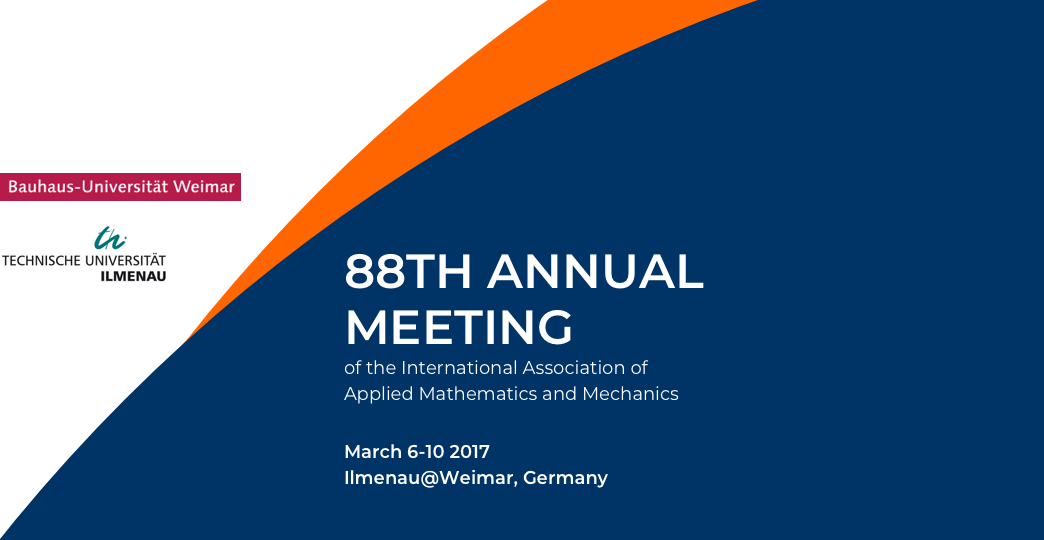MS 1 Innovative discretization methods, mechanical and mathematical investigations
tba
Organizers: Stefanie Reese (Aachen), Hamid Reza Bayat (Aachen), Stephan Wulfinghoff (Aachen)
Speakers:
MS 2 Recent trends in phase-field modelling
tba
Organizers: Laura de Lorenzis (Braunschweig), Bernd Markert (Aachen)
Speakers:
MS 3 Dislocation-based plasticity: State of the art and challenges
tba
Organizers: Katrin Schulz (Karlsruhe), Eric Bayerschen (Karlsruhe), Thomas Böhlke (Karlsruhe)
Speakers:
MS 4 Nonlinear approximations for high-dimensional problems
tba
Organizers: Markus Bachmayr (Paris), Ivan Oseledets (Skolkovo, Russia)
Speakers:
MS 5 Structured pseudospectra and stability radii: applications and computational issues
tba
Organizers: Nicola Guglielmi (L’ Aquila, Italy), Michael Karow ( Berlin)
Speakers:
MS 6 Turbulent liquid metal and magnetohydrodynamic flows
The goal of the minisymposium is to present an actual overview of the research activities in the field of turbulent liquid metal and magnetohydrodynamic flows. Laminar and turbulent flows in liquid metals and alloys with and without magnetic fields span a broad range of applications. They span from complex fluid motion inside stars or the liquid metal core of the Earth via nuclear engineering, material processing and steel casting to innovative energy storage devices such as liquid metal batteries. Liquid metal flows are opaque, often composed of hot and aggressive substances. The dimensionless parameters that quantify momentum and heat transfer can differ by orders of magnitude from those of other fluids. All this gives rise to significant challenges in their experimental analysis, their numerical computation and their theoretical modeling.
Organizers: Jörg Schumacher (Ilmenau), Leo Bühler (Karlsruhe)
Speakers:
MS 7 Flow Separation and vortical phenomena: Simulation in progress
Flow separation, in example flow separation at backward-facing steps or behind cylinders, is a fundamental topic of fluid dynamics. Although numerous experimental and numerical investigations have been carried out, a full insight and a complete understanding of the physics of separating flows and adjacent vortex formation is not given. The major reason for this lies in the fact that in most cases an analytical solution for the flow field is not available, in particular when transitional and turbulent flow phenomena have to be considered. This minisymposium addresses specific flow separation phenomena associated with fluid, turbulent and transitional properties. Possibilities of flow control technologies, changing the flow behavior essentially, will be discussed.
Organizers: Markus Rütten (DLR, Göttingen), Wolfgang Schröder (Aachen)
Speakers:
